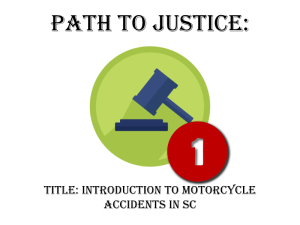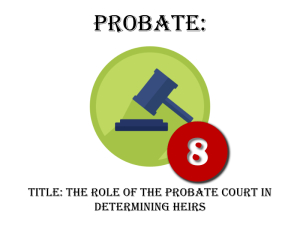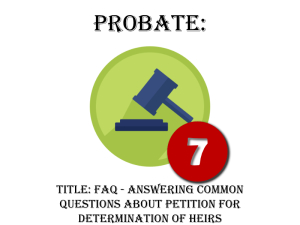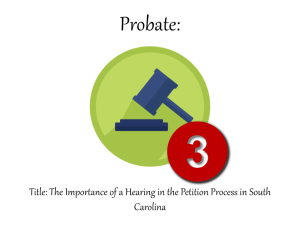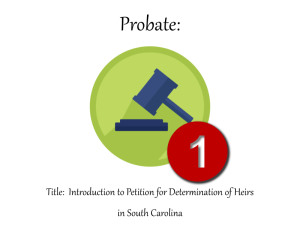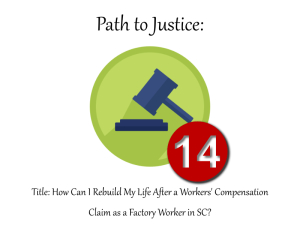Introduction
South Carolina, with its scenic routes and warm climate, is a haven for motorcycle enthusiasts. The freedom of the open road, the wind in your face, and the thrill of the ride are unmatched.
However, this freedom comes with its risks. Motorcycle accidents, unfortunately, are a reality on South Carolina roads, and understanding them is crucial for every rider and road user.
The Reality of Motorcycle Accidents in South Carolina
Motorcycles, while offering an unparalleled sense of freedom, also expose riders to certain vulnerabilities. Without the protective shell of a car or truck, motorcyclists often bear the brunt of
collisions, leading to severe injuries or even fatalities.
- Statistics Snapshot: In recent years, South Carolina has witnessed a significant number of motorcycle accidents. [Insert specific statistics if available, e.g., "In 2020, there were X
motorcycle accidents resulting in Y fatalities."]
- Common Causes: While reasons vary, some common causes include speeding, impaired driving, lack of visibility, and failure to yield right of way.
The Unique Challenges Faced by Motorcyclists
- Visibility Issues: Motorcycles, due to their smaller size, can easily be overlooked by other motorists, especially in heavy traffic or poor lighting conditions.
- Road Hazards: What might be a minor inconvenience for a car, like a pothole or wet leaves, can be a significant hazard for motorcyclists.
- Limited Protection: Despite helmets and protective gear, motorcyclists lack the comprehensive protection that a vehicle provides, making them more susceptible to injuries.
The Legal Landscape in South Carolina
South Carolina has specific laws and regulations pertaining to motorcyclists, from helmet requirements to rights on the road. Understanding these laws is not just about compliance;
it's about ensuring safety and knowing your rights in case of an accident.
- Helmet Laws: South Carolina mandates helmets for riders under the age of 21. While older riders have a choice, the safety benefits of helmets are undeniable.
- Insurance Requirements: Like other vehicles, motorcycles in South Carolina must be insured. This insurance plays a crucial role in the aftermath of an accident.
Why This Series Matters
Motorcycle accidents can be life-altering. Beyond the immediate physical injuries, they can lead to long-term trauma, financial burdens, and legal complexities. This series aims to shed
light on every facet of motorcycle accidents in South Carolina, from prevention to legal recourse. Whether you're a seasoned rider, a beginner, or just someone sharing the road with
motorcyclists, this knowledge is invaluable.
Conclusion
As we embark on this series, our goal is to provide a comprehensive guide to motorcycle accidents in South Carolina. With insights from legal experts at The Bill Connor Law Firm and
real-life case studies, we hope to equip our readers with the knowledge to navigate the challenges of the road safely and confidently.
Note: This article provides a general overview and introduction to the topic. Subsequent articles will delve deeper into specific areas related to motorcycle accidents in South Carolina.
Always consult with a legal professional for detailed guidance on individual cases.
Day 8: The Role of the Probate Court in Determining Heirs
Introduction
The probate court plays a central role in the process of determining heirs, especially when the traditional probate process is not an option due to the 10-year rule in South Carolina.
This court ensures that the rights of all parties involved are protected and that the law is adhered to. Let's delve into the specific responsibilities and functions of the probate court
in the determination of heirs.
- Reviewing the Petition
- Initial Scrutiny: Once the petition for determination of heirs is filed, the probate court's first task is to review the petition for completeness and adherence to legal requirements.
- Ensuring Proper Documentation: The court ensures that all necessary documents, such as death certificates, any existing wills, and evidence of relationships to the decedent,
are in order.
- Scheduling and Conducting Hearings
- Setting Dates: If there are disputes or challenges related to the petition, the court will schedule hearings to address these matters.
- Facilitating Testimonies: During hearings, witnesses, potential heirs, and other relevant parties may provide testimonies or present evidence. The court oversees this
process to ensure fairness and order.
- Resolving Disputes
- Mediation: The probate court may attempt to mediate conflicts among potential heirs or between heirs and creditors.
- Issuing Rulings: If mediation is unsuccessful or if certain legal points need clarification, the court will issue rulings based on the law and presented evidence.
- Recognizing Heirs
- Legal Recognition: Once all matters are settled and the court is satisfied with the evidence presented, it will issue a decision recognizing the rightful heirs.
- Titling Assets: The court's decision facilitates the titling of assets to the recognized heirs, even if distribution isn't possible due to the 10-year rule.
- Ensuring Rights of All Parties
- Protection of Heirs: The court ensures that the rights of heirs are upheld, and they receive the legal recognition and entitlements due to them.
- Addressing Creditors: The probate court also ensures that valid claims from creditors against the estate are addressed, balancing the interests of heirs and creditors.
- Maintaining Records
- Documentation: The probate court keeps detailed records of the entire process, from the initial filing of the petition to the final determination of heirs.
- Public Access: These records are typically public, allowing interested parties to review the proceedings and outcomes, unless specific privacy concerns or exceptions apply.
- Providing Legal Guidance
- Clarifying the Law: While the probate court doesn't offer legal advice in the way an attorney would, it can provide clarity on legal procedures and requirements related to the
determination of heirs.
- Directing to Resources: The court may direct individuals to resources or services that can assist them in navigating the process, such as legal aid or counseling services.
Conclusion
The probate court's role in the determination of heirs is multifaceted, ensuring that the process is conducted fairly, transparently, and in accordance with South Carolina law.
Whether mediating disputes, recognizing heirs, or maintaining public records, the court is instrumental in upholding the rights and interests of all parties involved.
Note: This article provides a general overview and might not cover all nuances of the probate court's role. Always consult with a legal professional, such as those at The Bill Connor Law
Firm, when navigating estate matters.
Introduction
The process of filing a petition for determination of heirs in South Carolina can be intricate and, for many, unfamiliar territory. As such, numerous questions arise. In today's installment, we
address some of the most frequently asked questions about this important legal procedure.
- What is a Petition for Determination of Heirs?
A petition for determination of heirs is a legal process initiated when an estate hasn't been probated within the stipulated 10-year period in South Carolina. It seeks to legally recognize and
determine the rightful heirs of a deceased individual, allowing for the titling of assets without distribution.
- Why would someone need to file this petition?
If an estate hasn't undergone the probate process within 10 years of the decedent's death, traditional probate becomes unavailable. In such cases, to gain legal recognition and title
assets, heirs, or representatives of the estate would need to file this petition.
- Who can file the petition?
Typically, an heir or the designated Personal Representative (if will is available) of the deceased's estate can initiate the petition. However, other parties with a legitimate interest in
the estate may also be eligible to file under certain circumstances.
- How long does the process take?
The duration varies based on the complexity of the estate, the availability of necessary documentation, potential disputes among heirs or creditors, and the court's caseload.
Generally, it can take several weeks to months, but contested cases might extend the timeline further.
- What happens if there are disputes among potential heirs?
If disagreements arise, the court may schedule hearings to address and resolve these disputes. Legal counsel can represent parties during these hearings, and the court will
make a final decision based on presented evidence and testimonies.
- Can creditors claim against the estate during this process?
Yes, creditors can file claims against the estate. The Personal Representative is responsible for notifying known creditors and settling valid claims using the estate's assets.
- What if the deceased left a will?
If the estate wasn’t probated within 10 years, the will cannot be probated and the petition for determination of heirs is necessary for titling assets by the laws of intestacy
at the time of the death. The will can help provide some authority for the Petitioner if the Petitioner is not an heir, but heirs take precedence.
- What's the difference between probate and determination of heirs?
Probate is the legal process of settling an estate, paying debts, and distributing assets based on a will or state law. Determination of heirs is a specific process to legally
recognize heirs and title assets when traditional probate isn't an option due to the 10-year rule.
- Can the process be expedited?
While the court process follows a set timeline, ensuring all documentation is in order and seeking legal counsel can help streamline the procedure and potentially avoid unnecessary
delays.
- Where can I seek legal assistance for this process?
Law firms specializing in estate and probate matters, like The Bill Connor Law Firm, can provide guidance, representation, and expertise throughout the petition process.
Conclusion
The petition for determination of heirs is a vital legal avenue for many families and individuals in South Carolina. While the process might seem daunting, understanding its
nuances and seeking professional guidance can make the journey smoother and more comprehensible.
Note: This FAQ provides general answers and might not cover all specific scenarios or nuances. Always consult with a legal professional for detailed guidance on individual cases.
Introduction
In the intricate web of estate proceedings, the Petitioner plays a pivotal role. When it comes to the petition for determination of heirs in South Carolina, their responsibilities are both unique
and crucial. Let's delve into the role of the Personal Representative in this process.
- Who is a Petitioner?
A Petitioner is a party with some interest in the decedent’s estate, usually an heir by law or potentially a devisee by will, who petitions the court for the order determining heirs when the
estate is beyond ten years and cannot be formally probated and no personal representative can be appointed.
- Initiating the Petition
- Filing the Petition: In many cases, the Petitioner is the one who initiates the petition for determination of heirs, especially if there's uncertainty about the rightful heirs or if the
estate hasn't been probated within the stipulated 10-year period.
- Gathering Documentation: The Petitioner is responsible for collecting all necessary documents, such as death certificates, any existing wills, and evidence of relationships
to the decedent.
- Representing the Estate's Interests
- Acting as a Neutral Party: The Petitioner acts in the best interest of the estate, ensuring that assets are protected and debts are settled. They must act impartially,
balancing the interests of heirs, creditors, and other stakeholders.
- Managing Estate Assets: Until the determination of heirs is finalized, the Petitioner manages the estate's assets, ensuring they are preserved and not wasted.
- Communicating with Stakeholders
- Liaising with Heirs: The Petitioner communicates with potential heirs, informing them of the process, what's expected of them, and any developments in the case.
- Liaising with non-probate parties with interest: If there are accounts that should have been transferred to heirs, the accountholders must be kept informed and prepared to
transfer assets (usually stocks or money) upon issuance of a Court order determining heirs.
- Assisting in Resolving Disputes
- Mediating Conflicts: If disputes arise among potential heirs or between heirs and non- probate parties with interest, the Petitioner can play a mediating role, aiming for an
amicable resolution.
- Seeking Legal Counsel: While the Petitioner is not a legal expert, they can (and often should) consult with legal professionals, like those at The Bill Connor Law Firm, to
navigate complex situations or disputes.
- Implementing the Court's Decision
Once the court makes a decision on the determination of heirs, the Petioner is responsible for implementing that decision. This includes:
- Titling Assets: Transferring titles of assets, particularly real property to the recognized heirs.
- Distributing Remaining Assets: The Petitioner oversees the distribution of assets from non-probate interested parties to heirs.
Conclusion
The role of the Petitioner in the petition for determination of heirs process is multifaceted and vital. They act as the linchpin, ensuring that interests are protected, stakeholders are informed,
and the court's decisions are implemented. Their role underscores the importance of having a knowledgeable and diligent individual or entity in this position, especially in complex estate matters.
Note: This article provides a general overview and might not cover all nuances of the Petitioner's role. Always consult with a legal professional when dealing with estate matters.
Introduction
The process of filing a petition for determination of heirs in South Carolina is not a solitary endeavor. Several parties play pivotal roles, each with their unique responsibilities and interests.
Understanding who these parties are and their roles can provide clarity and streamline the process. Let's explore the key players involved in a petition for determination of heirs.
1. The Petitioner
- Who They Are: The petitioner is the individual or entity initiating the petition for determination of heirs. This is typically an heir or a representative of the deceased's estate.
- Role: The petitioner's primary responsibility is to file the petition with the appropriate court, ensuring all necessary documentation and details are provided.
2. The Heirs
- Who They Are: Heirs are individuals who stand to inherit from the deceased's estate based on legal guidelines or the deceased's will (if one exists). This can include children,
spouses, siblings, and other relatives.
- Role: Heirs are the primary beneficiaries of the determination process. They may need to provide documentation proving their relationship to the deceased and may also have
the right to contest or support the petition.
3. The Court
- Who They Are: The court is the legal entity responsible for reviewing, processing, and making decisions regarding the petition.
- Role: The court examines the evidence presented, hears any disputes or challenges, and ultimately issues a decision on the determination of heirs. The court ensures that the
process adheres to South Carolina's legal guidelines.
4. Legal Counsel
- Who They Are: Legal counsel represents the interests of the petitioner, heirs, or other involved parties. This could be attorneys from firms like The Bill Connor Law Firm or other
legal professionals familiar with South Carolina's estate laws.
- Role: Legal counsel provides guidance throughout the process, ensuring that all legal procedures are correctly followed. They can also represent parties in court if disputes arise.
5. Potential Creditors
- Who They Are: Creditors are individuals or entities to whom the deceased owed debts or obligations at the time of death.
- Role: While the determination of heirs focuses on identifying legal heirs, creditors may have a stake in the estate's assets. They might file claims against the estate or monitor the
process to ensure their interests are considered.
6. Witnesses
- Who They Are: Witnesses are individuals who can provide testimony or evidence supporting the claims made in the petition. This could include friends, neighbors, or others familiar
with the deceased and their relationships.
- Role: Witnesses can corroborate details about the deceased's relationships, helping the court make informed decisions. Their testimonies can be crucial, especially in cases where
documentation is lacking or disputes arise.
Conclusion
The process of filing a petition for determination of heirs involves a tapestry of parties, each with their roles and responsibilities. Understanding these roles can demystify the process and ensure
that all parties' rights and interests are protected. As always, seeking guidance from legal professionals can provide clarity and support throughout this intricate journey.
Note: This article offers a general overview and may not encompass all nuances of the process. Always consult with a legal professional when navigating estate matters.
In South Carolina, the probate process is a well-defined legal journey, especially when it comes to the determination of heirs for estates that haven't been probated within ten years. One of the
pivotal stages in this process is the hearing. This article delves into the importance and intricacies of the petition hearing in South Carolina.
Why is the Hearing Essential?
The hearing serves as a formal platform where interested parties can present their claims, and the court can make a formal determination of heirs. It ensures that all parties involved have a
fair chance to voice their concerns or claims regarding the estate.
The Process Leading to the Hearing
Before the hearing, several steps need to be meticulously followed:
- Filing: A written request, typically known as the petition, is filed with the probate court. Along with the petition, for decedent's cases, a death certificate is also required if it
hasn't been previously filed.
- Service: Once the petition is filed, pleadings need to be served to interested persons. This service can be done personally or via certified mail. If the service is done by regular
mail, an Acceptance of Service is necessary.
- Answer: After the service, respondents have 30 days to file a response, commonly referred to as the “Answer.” If no answers are received after this period, it's considered a
default. In such cases, an Affidavit of Default is prepared by the petitioner's attorney.
The Hearing
The hearing is typically set 120 days from the initial filing date or earlier if all parties agree. A 20-day notice of the hearing is mandatory, and this notice is mailed to the respondents or their
attorneys. Proof of this delivery must be filed with the Probate Court. If respondents voluntarily appear at the hearing, it waives the notice requirement.
During the hearing, the court reviews all the presented evidence, listens to the claims, and then makes a formal determination of heirs. This determination is crucial for establishing the legal
title to the decedent's property.
Prior to the hearing, the Petitioner must gather all documentary evidence to prove the heirs he is alleging (Birth Certificates, Marriage Certificates, and Death Certificates associated with the
decedent). Additionally, courts generally require a friend (not a family member with interest) who knew the decedent personally and can testify he didn’t have any other children outside
of marriage. Courts will generally accept an obituary as documentary evidence of heirs.
Conclusion
The hearing in the petition process for determination of heirs in South Carolina is a critical step in ensuring transparency, fairness, and adherence to the state's laws. It's essential for all parties
involved to understand the process, the formalities, and the implications of the hearing's outcome.
In the world of probate law, the term 'decedent' refers to the individual who has passed away. In the context of a petition for determination of heirs, the decedent plays a central role, even
posthumously. This article aims to provide an advanced understanding of the decedent's role in the petition process in South Carolina.
When a person passes away, their estate, which includes all their assets and liabilities, is subject to the probate process. This process is initiated by the filing of a petition for appointment
of personal representative, a formal document that provides the court with necessary information about the decedent, their estate, and potential heirs.
The decedent's role in the petition process is primarily defined by their actions before death. For instance, if the decedent had a valid will, it would guide the distribution of their assets.
However, if the decedent died intestate, meaning without a valid will, the court would follow South Carolina's intestacy laws to determine the rightful heirs.
The county where the decedent resided at the time of death typically has jurisdiction over the probate process. The personal representative of the estate, often appointed in the decedent's
will or by the court, is responsible for filing the petition in the appropriate county court.
A Petition for Determination of heirs is for the circumstance in which an estate has not been probated within ten years of the time of death of decedent. In that event, the estate is time-barred
from the regular probate process, including an appointment of a personal representative. This means assets of the estate cannot be distributed, though, at ten years, it is unlikely any assets
would be left beyond potential interest in real property. An interest in real property and potentially a non-probate beneficiary transfer (not subject to the ten-year rule) would be the reason
for Determination of Heirs, as that gives a court order designating the transfer of interest in real estate or a transfer outside probate.
The petition process involves several steps that must be completed in a specific order. These steps include filing the petition, notifying interested parties, scheduling a hearing, and finally, the
court's determination of heirs. Each step has its own set of requirements and formalities that must be adhered to.
The decedent's role extends beyond the initiation of the petition process. Their actions, or lack thereof, can significantly impact the process. For instance, if the decedent failed to maintain
proper records of associated relative birth certificates, death certificates, and marriage certificates, it could complicate the process as those records are necessary for this process.
In conclusion, the decedent plays a crucial role in the petition process for determination of heirs in South Carolina. In our next article, we will delve deeper into the importance of a hearing
in the petition process. Stay tuned!
In the realm of probate law, one term you might come across is a “petition for determination of heirs.” This legal process, particularly relevant in South Carolina, is a crucial step
in the administration of a decedent's estate. But what does it entail, and why is it so important? In this article, we'll delve into these questions, shedding light on the
extraordinary deals and processes involved in a petition for determination of heirs in South Carolina.
First, the reason you would file the Petition versus filing an estate in probate (which accomplishes the same end as the Petition in establishing heirs/devisees and further end of
distributing assets of the estate) is that more than 10 years have passed since the death of the person with the estate. It’s important to file an estate with probate within 10
years, as that is not only easier than the determination of heirs but does allow for distribution of assets. The Petition is for the circumstance in which that deadline was missed.
Importantly, it allows for subsequent administration of the heirs of the decedent who die after the decedent with the determination of heirs.
The probate court plays a pivotal role in the petition process. When a person passes away, their estate—comprising all their assets and liabilities—falls under the jurisdiction of the
probate court. The court oversees the administration of the estate, ensuring that all debts are paid, and remaining assets are distributed to the rightful heirs.
The petition for determination of heirs is a formal request made to the court to officially recognize the decedent's heirs. This process is particularly important when the decedent has
died intestate, meaning without a valid will in place. In such cases, the court follows the state's intestacy laws to determine who the rightful heirs are.
Heirs, in this context, are the individuals legally entitled to inherit from the decedent. They can include spouses, children, parents, siblings, or other relatives, depending on the state's
laws. In South Carolina, the determination of heirs is guided by the South Carolina Probate Code.
The petition process begins with the filing of a formal document, typically by the estate's personal representative. This document, known as the petition for determination of heirs,
provides the court with necessary information about the decedent, their estate, and potential heirs. The court then reviews the petition, and if everything is in order, a hearing is
scheduled.
The hearing is a crucial part of the process. It provides an opportunity for interested parties to present their claims and for the court to make a formal determination of heirs.
Once the court has made its decision, titling of real property can be done properly with legal interest of parties who should have received real property. In other words, it allows for
a legal chain of title. It can also be used in some cases for accounts that require legally determined heirs as beneficiaries. Unfortunately, determination of heirs does not allow for
the normal probate administration and distribution of assets of the decedent (another reason to attempt to file the estate within 10 years of death), though usually after 10 years,
the only issue is with real estate titling.
In conclusion, the petition for determination of heirs is a critical step in the probate process in South Carolina if 10 years have passed without the estate being filed. It ensures that real
estate can be properly titled and subsequent estates can be distributed according to law and that the rightful heirs receive their due inheritance. In our next article, we will delve deeper
into the role of the decedent in the petition process. Stay tuned!
Getting back on your feet after a workplace injury can be a challenging and often daunting task. You've navigated the workers' compensation process, but now you're facing the reality of moving
forward and rebuilding your life post-claim. Here are some important steps to help you get back on track.
Physical Rehabilitation
The severity and nature of your injury will determine your physical recovery process. It's crucial to follow the prescribed physical therapy or rehabilitation program from your healthcare provider.
Consistent participation can improve your functionality and health, potentially hastening your return to work if possible.
Vocational Rehabilitation
If your injuries prevent you from returning to your previous role, you may need vocational rehabilitation. These services, often covered by workers' compensation, can help you gain new skills for
different types of work. Don't hesitate to explore this option with your compensation lawyer or claims adjuster.
Mental Health Support
Dealing with an injury and its aftermath can take a toll on your mental health. Consider seeking support from mental health professionals. Coping strategies can help manage stress, anxiety, and
other emotional challenges associated with your injury and recovery process.
Financial Planning
After settling your workers' compensation claim, it's time to reassess your financial situation. With the help of a financial advisor, you can plan effectively for your future, taking into account your
current earning capacity and future medical expenses.
Legal Advice
Even after your claim, keeping in touch with your legal representative is advisable. They can provide guidance regarding any future medical needs related to your injury and ensure you understand
the long-term implications of your settlement.
Support Networks
Remember, you're not alone in this journey. Leverage your personal support networks - family, friends, and community resources. There are also support groups for individuals who've experienced
workplace injuries, providing a platform to share experiences and gain insights.
Continuing Education
Consider furthering your education or training. This can open up new employment opportunities and help with job security in the future. Many organizations provide scholarships or financial aid for
injured workers seeking to enhance their skills.
Conclusion
Adjusting to life after a workers' compensation claim can present challenges. This transition often requires strategic planning and the right resources. More importantly, it necessitates the support
of a dedicated legal team that understands the complexities of such claims. The Bill Connor Law Firm can provide that unwavering support, ready to assist as you navigate this new phase of your
life. If you need help managing your workers' compensation claim or have questions about the process, know that The Bill Connor Law Firm stands beside you. Remember, it's your fundamental
right to work in a safe environment and receive full and fair compensation for any injuries sustained.
When factory workers in South Carolina file for workers' compensation, several factors can impact the outcome of their claims. Understanding these factors is crucial to ensure you receive
fair compensation for your injuries. In this article, we will explore the key factors that can affect workers' compensation claims for factory workers, including the impact of pre-existing
conditions.
Nature and Severity of the Injury
The nature and severity of the injury sustained in the workplace play a significant role in determining the workers' compensation benefits. Severe injuries that result in long-term
disabilities or permanent impairments may lead to higher compensation amounts.
Causation and Work-Relatedness
For a workers' compensation claim to be successful, it is essential to establish that the injury occurred in the course of employment. The injury must be work-related, arising out of and
during the performance of work duties.
Timely Reporting
Promptly reporting workplace injuries to the employer is vital. Delayed reporting may raise questions about the validity of the claim and could result in denial or delay of benefits.
Pre-existing Conditions
Pre-existing medical conditions can complicate workers' compensation claims. If a pre-existing condition is aggravated or worsened by a workplace injury, it may still be eligible
for compensation. However, determining the proportion of the injury attributable to the workplace accident versus the pre-existing condition can be complex.
Proper Medical Documentation
Comprehensive and accurate medical documentation is essential for a successful workers' compensation claim. Medical records must clearly outline the diagnosis, treatment plan,
and the extent to which the injury impacts the worker's ability to perform job duties.
Compliance with Medical Treatment
Consistently following the prescribed medical treatment and attending all required medical appointments is crucial. Failure to comply with treatment may be used as a basis to
question the severity of the injury and the need for compensation.
Return-to-Work Plan
If you are cleared to return to work with restrictions or limitations, your employer may offer a modified work arrangement. Complying with the return-to-work plan is crucial to
receiving partial disability benefits, if applicable.
Employability and Vocational Rehabilitation
For workers with severe injuries preventing them from returning to their previous job, vocational rehabilitation may be provided to help transition to suitable alternative employment.
Attorney Representation
Having legal representation from an experienced workers' compensation attorney can significantly impact the success of your claim. An attorney can navigate the complexities of the
workers' compensation process, ensure your rights are protected, and advocate for fair compensation on your behalf.
Conclusion
Workers' compensation claims for factory workers are influenced by several crucial factors that can impact the success of their case. The type and severity of the injury, whether it
occurred while performing work duties, pre-existing medical conditions, proper medical documentation, and following the prescribed treatment, all play pivotal roles. To navigate
these complexities and ensure your rights are protected, it's vital to seek the expertise of a skilled workers' compensation attorney. If you've been injured at work, call the Bill Connor
Law Firm today to see how we can assist you in this process. Stay informed and protect your rights!
